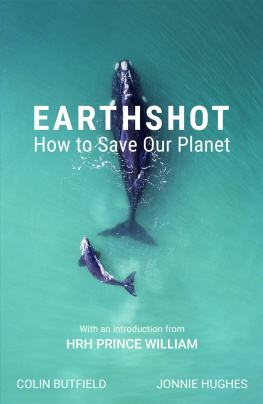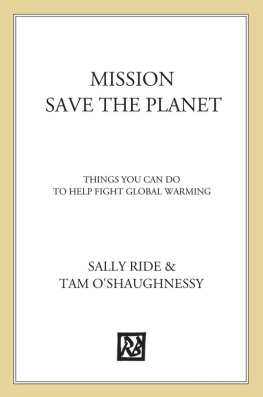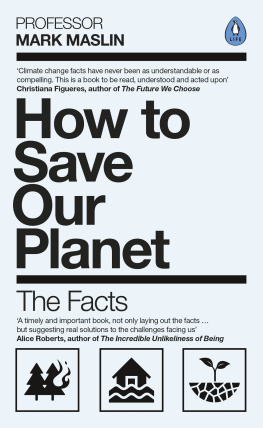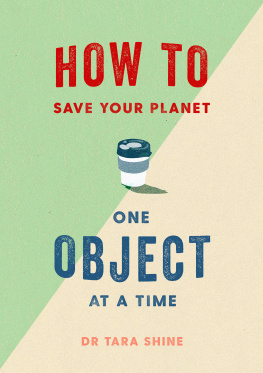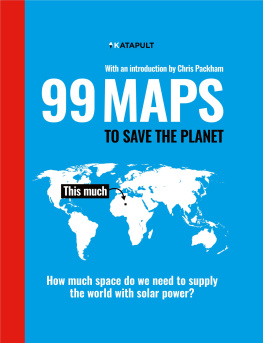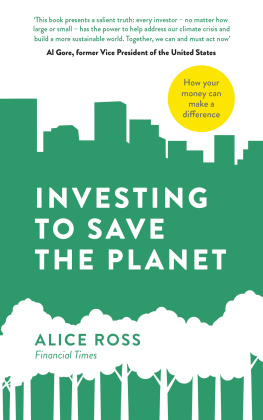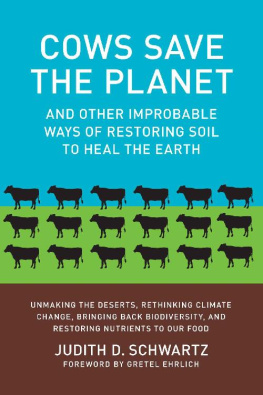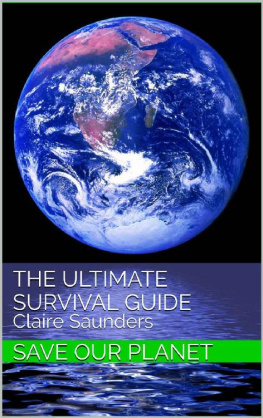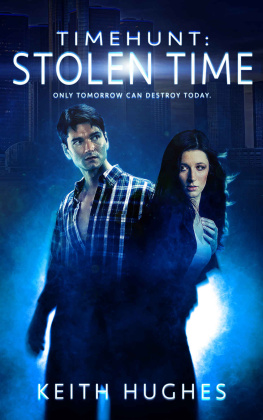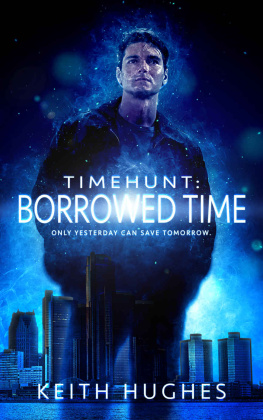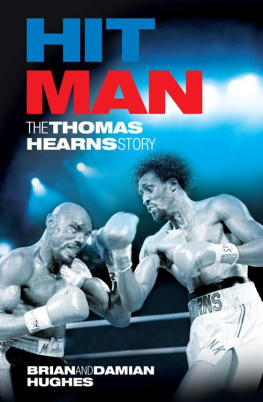About the Authors
Colin Butfield is co-founder of Studio Silverback, Executive Producer of the WWFs Our Planet project and an advisor for The Earthshot Prize.
Jonnie Hughes is an award-winning natural history TV producer, co-founder of Studio Silverback, and bestselling author and co-writer of Sir David Attenboroughs A Life on Our Planet .
How to use this eBook
Look out for linked text (which is in blue) throughout the ebook that you can select to help you navigate between notes and main text.
Introduction
T he sight that greets you on arrival at the Hoanib Valley in the Kunene region of Namibia is breath-taking. The desert landscape is rocky and bare, criss-crossed with ancient, dry riverbeds that are now used as roads, and punctured by the odd tree and bit of scrub. The setting sun behind the mountains makes you stop in your tracks. This place has a majestic otherworldly beauty.
What makes the environment even more breath-taking is the wildlife that now thrives here. Herds of springbok and oryx pick their way through the dusty plains. Desert-adapted giraffes amble along with an elegant gait. Elephants shelter from the beating sun under the shade of large trees. And if you are willing to get up early, be patient, and have a bit of luck on your side, you might spot one of the regions precious, free-ranging black rhino or even a desert lion.
It was here, in September 2018, under the vast Namibian desert sky, that The Earthshot Prize was born.
I had wanted to visit this region for years, and it didnt disappoint. But beyond the visual wonders was an even more inspiring story. Namibia is a leader in developing and implementing a modern way of doing wildlife conservation that puts people first. In the 1980s, faced with the rampant poaching sadly seen across much of the world, the government granted communities the right to create conservancies: areas with defined borders and a management structure outside of the national parks. The idea was to give communities the right to manage and benefit from the wildlife they live beside.
Since 1998, Namibia has created eighty-six such conservancies, covering nearly 20 per cent of the country and 9 per cent of its population. As a result, Namibias elephant population has more than doubled and black rhinos once near extinction have grown to be the largest free-ranging population in the world. Rural economies have been enhanced and diversified, bringing new jobs, tourism and investment. Tourism accounts for just over 11 per cent of Namibias GDP. Covid-19 has of course made life very hard, but across the board, local communities commitment to the long-term benefits of the conservancy model remains strong.
You might be wondering how I went from a 5 a.m. start to catch a fleeting glimpse of a shy black rhino in the north-west corner of Namibia, to building a team to deliver the most ambitious environmental prize in history. The answer lies in a crucial disconnect this visit clarified for me, between the optimism and determination I saw on the ground, and the despair and anger that would come to dominate headlines just a few weeks later.
The rich wildlife that I saw thriving on that visit struck a real chord. The community conservancy model is a prime example of how a simple, positive solution can have wide-reaching benefits for both humans and nature. Most importantly of all, it is a success story that can be replicated and scaled. I wanted to find a way to bottle that innovation and community spirit and mass-produce it globally.
But when I returned to the UK, just as the world was gathering again for the next round of climate change negotiations in Poland, I was hit by a wave of global pessimism. The headlines were dominated by a sense that world leaders were not moving fast enough. There was widespread finger pointing and political and geographical division. To those of us following at home, it wasnt an inspiring sight.
I understood why the mood was full of despair, of course. The challenge facing our planet is immense. We were about to enter what scientists say is the most consequential decade in history. Humans have taken too many fish from the sea. We have cleared too many trees, burnt too much fossil fuel, and produced too much waste. The damage we are doing is no longer incremental but exponential, and we are fast reaching a tipping point.
The science tells us that if we do not act to restore our planet by 2030, the damage will be irreversible, and the effects will be felt not just by future generations but by all of us alive today. What is more, this damage will not be felt equally by everyone. It is the most vulnerable, those with the fewest resources, and those who have done the least to cause climate change, who will be impacted the most.
The facts look terrifying, and I could see that this risked making people feel like they might as well give up. The global debate felt too complex, too negative,

